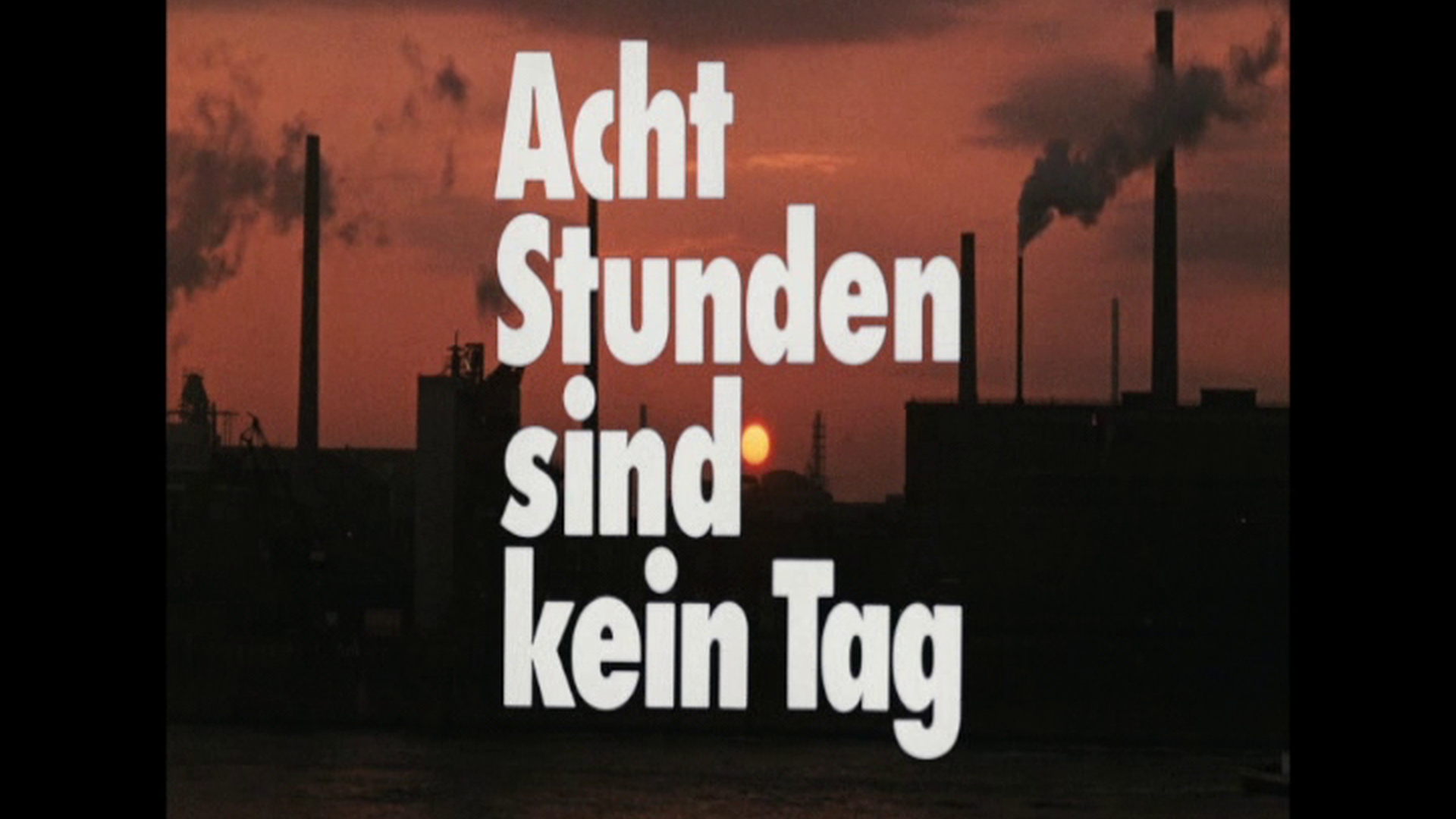On the radical filmmaker’s successful attempt to smuggle socialist critique into popular melodrama.
In the 1970s, TV was the dominant medium. Not, as it is today, one of dozens of diffuse forms competing for distracted attention. Rather, millions watched the same thing, at the same time, after work every evening. Sometimes, a film director from the ‘arthouse’ made their way into the behemoth of centralised, state-corporate television, where they’d find lower budgets, much tighter control from producers (and, sometimes, the state), but the unique opportunity to connect to, and communicate with, a mass audience, well beyond what they could ever reach at the Film Theatres and the Festivals. The West German director Rainer Werner Fassbinder (1945-1982) longed for that connection. Raised in the 1960s radical intellectual milieu that spanned from the Frankfurt School to far-left terrorism, for Fassbinder post-war capitalist West Germany was a deeply sick society, and one which his notoriously prolific output of films aimed to diagnose. This was to be done via a fusion of familiar left art icons – the theatre of Brecht and Genet, the films of Godard – with something much less obvious: the Hollywood melodrama, or more specifically the genres derisively known as ‘women’s films’ or ‘weepies’.
After making several traditionally arthouse, black and white crime dramas in the late 60s and early 70s, Fassbinder chanced on the means by which to express his critique of West German capitalism in the films of the German emigre director Douglas Sirk. With the rise of Hitler, Sirk moved to Hollywood, where, like a sleeper agent, he did little of note until a series of shattering 1950s epics, Imitation of Life, Written on the Wind and All That Heaven Allows. These were glossy, high-budget, star-studded, rampantly sentimental and lurid, but also, harshly alienating, utterly artificial, and with an inescapable undercurrent of critique, aimed at American racial politics, the nuclear family, and class society. For Fassbinder, these films showed how to be an entryist in the mass media. ‘The best thing I could think of’, he later recalled, was ‘to create a union between something as beautiful and powerful and wonderful as the Hollywood film and a criticism of the status quo’.
With Sirk as exemplar, Fassbinder – with his entourage of a dozen or so unconventional actors, with whom he’d worked with in a communal ‘Anti-Theatre’ in 1960s Munich – would attempt to achieve this in TV, where broadcast made viewing compulsive rather than elective, as well as in film. Fassbinder would direct several made-for-TV films (most notably, two tales of middle class neuroses, Fear of Fear (1975) and the extraordinary, hysterical Martha (1974)). He also directed three TV series for Westdeutscher Rundfunk (WDR), the public broadcasting body for North-Rhine Westphalia, the densely populated West German state that includes Cologne, Düsseldorf, the then capital Bonn, and the most densely industrialised area in Europe, the Ruhr. These are Eight Hours Don’t Make A Day (1972), World on a Wire (1973) and the famous Berlin Alexanderplatz (1980). How successful were these in achieving Fassbinder’s aim of smuggling the ruthless critique of everything that exists into a 9pm weekday slot?
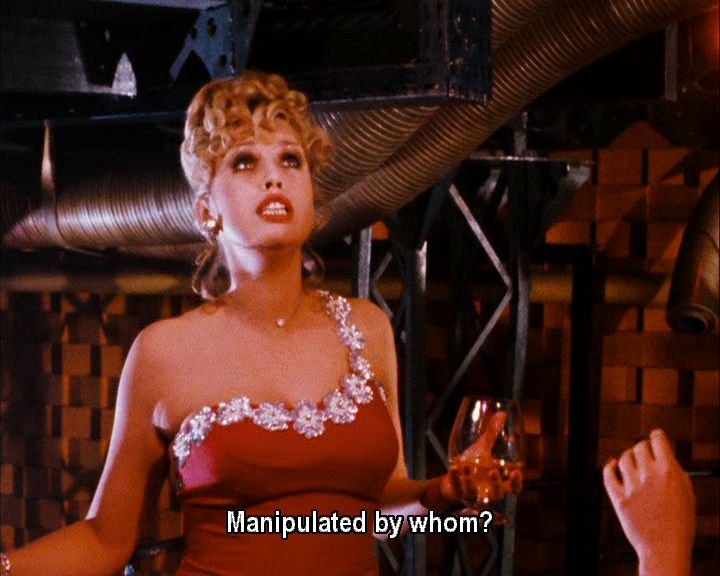
Of these, the most unique is the haunting World on a Wire. Like all of Fassbinder’s TV work it is beautifully shot and lushly produced, with a fluid camera floating through an artificial, ultra-modernist landscape of glass office blocks, Brutalist towers, Miesian interiors, Verner Panton bathhouses of curved walls and spaceage chandeliers and multi-level gay discos. It is premised on a high-tech research institute that has developed Simulacron 1, a complete simulation of an enclosed human microcosm, with intelligent computer-generated ‘people’ moving around a replica of the strange, alien city that they themselves drift around, listless and paranoid. A computer engineer, Fred Stiller, finds that after a colleague has disappeared without trace, only he remembers him. The lines between the simulation and the ‘reality’ become increasingly blurred, as Stiller comes to realise that the ‘real world’ is also a Simulation, which the real real world above it has allowed to develop its own simulation-within-the-simulation. World on a Wire is habitually compared with The Matrix, but the gap between the real and the simulated here is much more subtle. Critique here is implicit, of a world dominated by pre-programmed relations between things, and while the sets are gorgeous, it’s hard not to wonder whether the languorous, dreamlike pace would have led to a lot of sudden switchings-off.
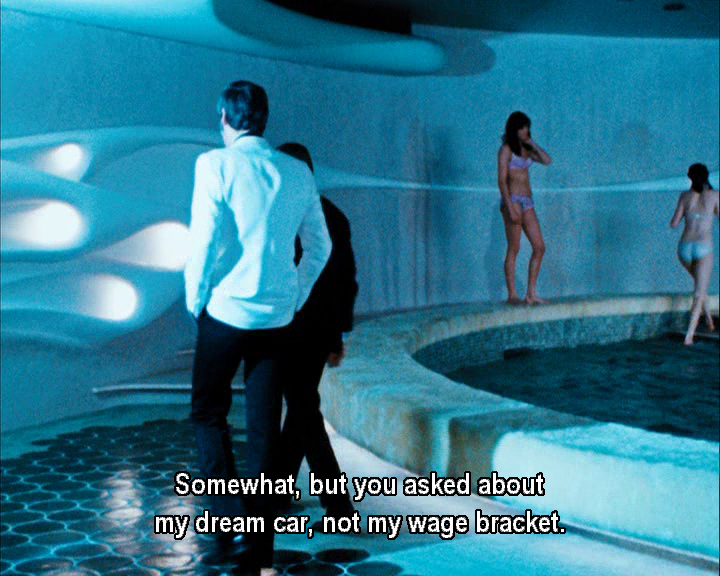
Berlin Alexanderplatz, while clearly a masterpiece of some kind, is closest of the three to conventional ideas of art cinema, transferred to a series of discrete episodes - one reason perhaps why it is the best remembered of the three. It was broadcast on Channel 4 soon after its original WDR screening, and repeated – I watched it for the first time on VHS cassettes taped from an early 90s run. It tells the story – based on Alfred Döblin’s 1929 novel – of Franz Biberkopf, a pimp and rapist just released from prison for the murder of his girlfriend, and his thwarted attempts to ‘go straight’ and rebuild his life with the sex worker Mieze, played by Barbara Sukowa. The seemingly indefensible Biberkopf is portrayed with heartbreaking empathy by Günter Lamprecht as a dazed, sincere fool; Sukowa plays Mieze as a lost innocent. Their destruction, largely at the hands of the practically satanic hood Reinhold (a terrifying, stammering Gottfried John), is often hard to watch; the actors’ passionate performances and Fassbinder’s distancing effects fight each other throughout, constantly eliciting sympathy and then dashing it.
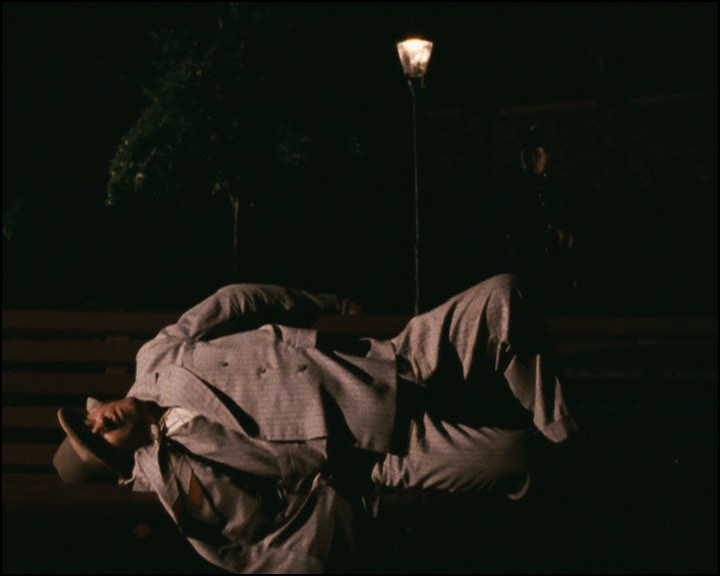
One salient thing about Berlin Alexanderplatz, especially when compared with Döblin’s novel, on which it is loosely based, is that the city barely exists. Almost everything takes place in one claustrophobic rented room. The world outside intrudes most via the flickering neon lights that flash into the characters’ faces as they fight out their private psychodramas. The politics of the time – especially, the Weimar Republic’s collapse, as the Communists replaced the Social Democrats as the leading Party of the poor in Berlin, and the National Socialists began to sweep everyone else along with them – feature, but elliptically. Biberkopf sells a Nazi paper for a time, but merely as a brief casual job. He scorns the politics of a Communist friend, and his idea of the world outside of his immediate lumpenproletarian circle is defined by half-remembered patriotic songs. When the book was published, Döblin – a psychiatrist and writer whose clinic was near the titular Berlin East End square – was criticised by the powerful Communist press for choosing pimps and prostitutes as the ‘typical’ inhabitants of an area that was, in reality, at least as much characterised by class-conscious, heavily organised – and Communist-voting – proletarians.
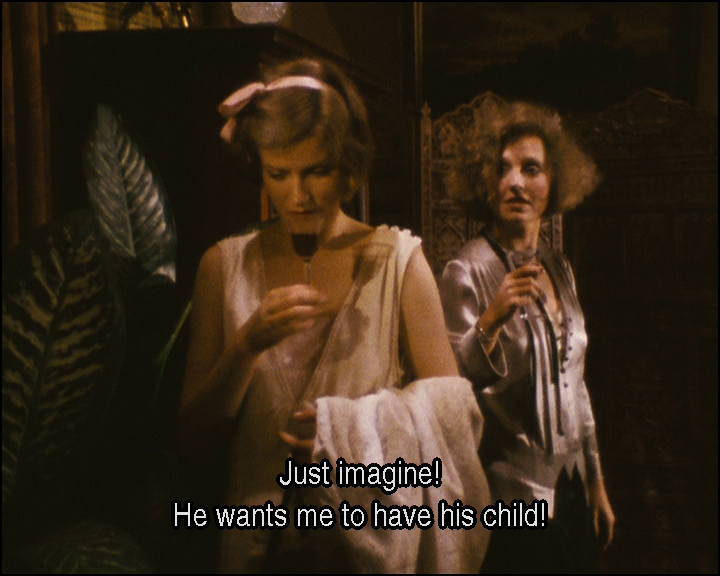
The least known of Fassbinder’s WDR series – only fully translated and released in English in 2017 – is the first, Eight Hours Don’t Make A Day, broadcast at the end of 1972. It takes on exactly the things that are absent from proletarian life in Berlin Alexanderplatz – industrial labour, organisation, solidarity, and also, banal nuclear family life. Fassbinder was hired after the success of the first of his Sirk-inspired melodramas, The Merchant of Four Seasons (1971), to make a ‘Family Series’ about working class life. Fassbinder would describe it as being ‘about solidarity between workers and how they stick together. Because the boss treats the workers as isolated people, it’s hard for them to show solidarity’. He was keen to point out that ‘we took almost an entire year for research, talked to union members and workers and looked at factories’, and that their consultation and input was part of the production process throughout. Even this was relatively conservative at the time, with books like Oskar Negt and the avant-garde director Alexander Kluge’s contemporary Public Sphere and Experience arguing for public television ‘by’ rather than ‘for’ workers. Even then, though, what happens here is extremely unusual – a TV series about working class life in which what happens at work – at the factory – is treated as an incredibly important part of life, and a space to be contested and fought over.
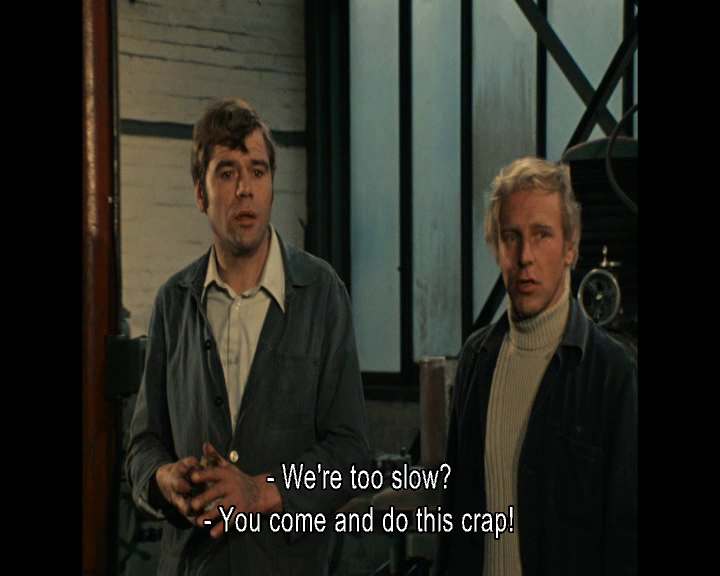
It’s set in what might now appear as the most golden time and place of the post-war golden age of social democratically tempered capitalism – Willy Brandt’s West Germany in the early 1970s. Nobody at any point has to worry about having enough to eat, everybody can pay the rent (though they can’t always live where they’d like to), nobody is worried whether or not they’ll lose their job (or whether they could get another one), nobody is ‘precarious’, and workers are openly and repeatedly threatening to management. In a world where many lives are being pushed more into the desperation depicted in Berlin Alexanderplatz, that era might seem beyond criticism. It is, roughly, the sort of world that many self-identifying young socialists now long for. But its limits are stressed by Fassbinder, and not in the histrionic, ultra-left way that was common at the time. In the early 1970s the Red Army Faction (one of whose leading members, Holger Meins, was an old friend of Fassbinder from ’60s Munich) had declared war on a West Germany they regarded as little more than an extension of the Third Reich. Fassbinder takes on West German capitalism not through this sort of hysteria, but through a level-headed, dialectical depiction of working class experience.
Eight Hours Don’t Make A Day is about Jochen (Gottfried John, again – here unrecognisable from Alexanderplatz), a skilled worker at a machine tool factory in Cologne, his white collar girlfriend, Marion (Hanna Schygulla), who works for a travel agent, and their family, friends and work colleagues. The series was heavily criticised in the far-left, avant-garde circles from which Fassbinder has emerged, most of all because of the characterisation of these people as good-looking, articulate, ironic and charismatic. The series is fast, sexy and funny, with its characters capable of both coarse humour and political complexity. From this distance, this implicit fuck you to the eat your greens, Socialist Realist, Ken Loach approach to working class life is actually one of the most attractive elements of Eight Hours Don’t Make A Day. Why, in that time of rising prosperity, rising expectations and social democratic optimism, should workers have been portrayed as downtrodden, inarticulate and stupid?
It is interesting, though, how the critique had shifted from Döblin’s day. Here, the problem wasn’t in depicting workers as being brutal and driven by appalling unconscious urges, but in precisely the opposite. The lack of angst and bitterness in this series when compared with the rest of Fassbinder’s work is striking. This was his only extended project directly about the organised working class in a career that consisted of nearly 50 films in 14 years, and suggests that Fassbinder’s rage was directed at the West German bourgeoisie he came from, and that it simply didn’t apply outside of it. That isn’t to say there isn’t racism, misogyny, and violence in Eight Hours Don’t Make A Day – there is plenty, in fact - but that the way in which the characters deal with it is different, openly discussed and argued over rather than swept primly under the carpet.
Eight Hours is bookended by the depiction of struggles in Jochen’s factory, and their often unexpected effects. He, and colleagues such as the relatively inarticulate Franz, take their work seriously – they’re skilled, they know they are, and they know they can plan and control what they do better than the foreman and the boss can. In the first episode, Jochen proposes a rationalisation at work – evidently expecting, incorrectly, that they’d be paid for the extra that is produced – and is furious when the company creams the extra from the innovations the workers themselves had devised. The labour force includes several ‘guest workers’ from Greece, Italy and Turkey, along with one very vociferous racist, who is also the least concerned of all the workers with the issues of control and power at work that Jochen and Franz concern themselves with.
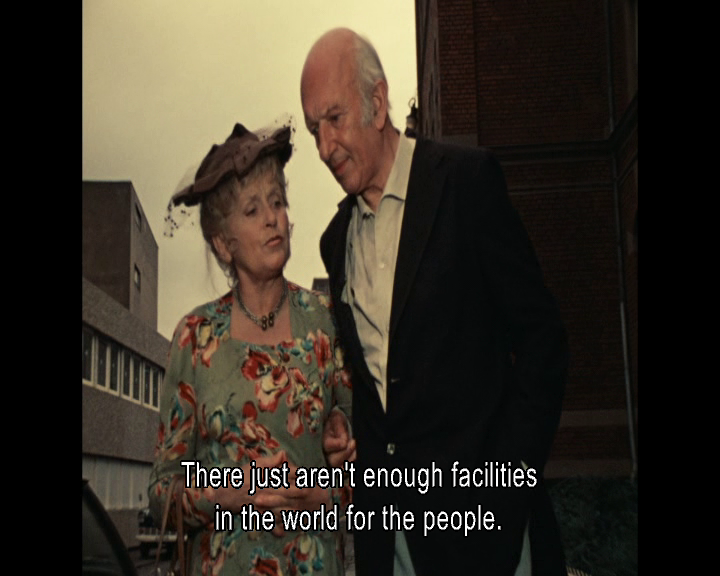
Running alongside factory life, is the touching and very funny story of Jochen’s Grandmother and her new lover, the taciturn but benign Gregor. She decides to use the spare time she has got out of her state pension on a variety of personal projects. She and Gregor try to find a city centre flat together with their combined pensions, but her technique to get the rents reduced by pointing out flaws in each of the flats she visits has little effect. Her activism partly comes in her relation to the rest of her family. When her granddaughter, upwardly mobile but into a depressing, violent marriage, seeks solace with a Noel Edmonds-like pyramid salesman, she treats him with marvellously short shift. But it also comes out in her creation of a self-organised kindergarten in the dilapidated inner city of Cologne. As Alexander Vasudevan points out in his recent history of squatting, The Autonomous City, modern West German cities like Cologne were demolishing their 19th century residential cores at this time, to replace them with office districts, and moving workers to superior social housing further out. In the gap between the two, squats would emerge. But rather than some group of raggle-taggle autonomists (like, perhaps, Fassbinder’s old Anti-Theatre commune), the squatter here is the working class Grandma. On finding that a municipal library on one of these grimy streets is being closed down (‘these people don’t read anyway’, she is told), she decides to hire Jochen and his workmates to transform it into a kindergarten overnight. The German and Turkish kids playing outside take some convincing to use it – but when they’ve decided to, the efforts of the city authorities to evict them face stiff opposition.
This treatment of autonomous working class action as something absolutely ordinary especially characterises the last episode of this five-part series. The workers at the factory are told that production will move to a new site on the other end of town, and they try to work up a list of demands in order to get something back out of what appears to be a done deal. Depressed, they realise their demands – better toilets, better canteens – are ‘childish’, until an Italian guest worker, mocked by a neanderthal colleague for his shaky German, pulls out a letter from a friend relating the factory occupations back home, and how workers there have started to organise their production process themselves. Inspired, they agree to take this demand to the management, who are, of course, incredibly hostile. It is sent to the director, who, by contrast, is keen. The workers on the shop floor have proven already they can run the factory more smoothly when unsupervised, rather than with a foreman and a time and motion study watching over them at all times. Therefore, their creativity means more profit – even if the workers get a larger cut. To the shock of both shop floor and management, they win the demand, and feel very pleased with themselves.
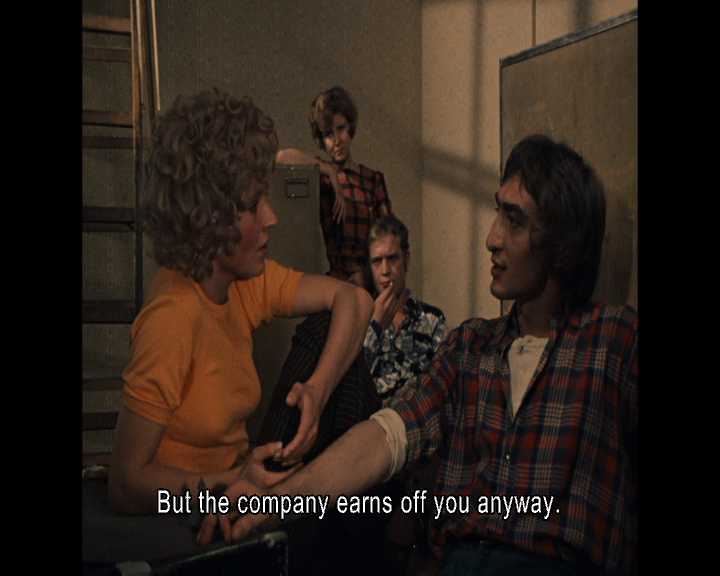
Afterwards, as she and Jochen move house to be closer to the new factory, Marion quietly administers the kicker. They’re still making money out of you. They still get a bigger cut than you do. Most of the proceeds of your creative work are going to them, not you. And, there are now more proceeds. Aside from being surely the only moment in 1970s TV where a woman calmly explains the Marxist theory of value in simple terms in the course of two minutes, this moment is full of resonances. There’s a bleak Fassbinderian irony in the fact that the attempt to get control actually turns out to be mainly boosting the bosses, and for later political and theoretical developments it’s rather appropriate that this comes indirectly from the factories of Italy. But the realisation is not depressing. As is always the case with social democratic compromises with capitalism, Jochen and his friends have won, and also lost. They have autonomy, and they don’t. Their lives are getting better, but real control over them is out of reach. But they stay together, through solidarity, and love. It is a wonderful ending, and an unintended one.
Ratings were good – much better than could have been expected in hiring an experimental radical filmmaker to make a soap opera – and a further three scripts had been written. Fassbinder, the cast and crew had already been paid. Yet WDR suddenly pulled the plug after the fifth episode. Although he would be commissioned again by WDR, Fassbinder was surely correct in his belief that the axing was politically motivated. Workers being pretty, fine; workers being articulate, ok; workers taking collective action and winning, hmmm; workers realising in the process how capitalism works, maybe that’s the point to stop. The later scripts apparently dealt more with trade union matters, and Jochen and Marion’s charming relationship was meant to start running into problems. But the cancellation surely proved a point that Fassbinder must have appreciated. The plan to smuggle socialist critique into popular melodrama had worked.
